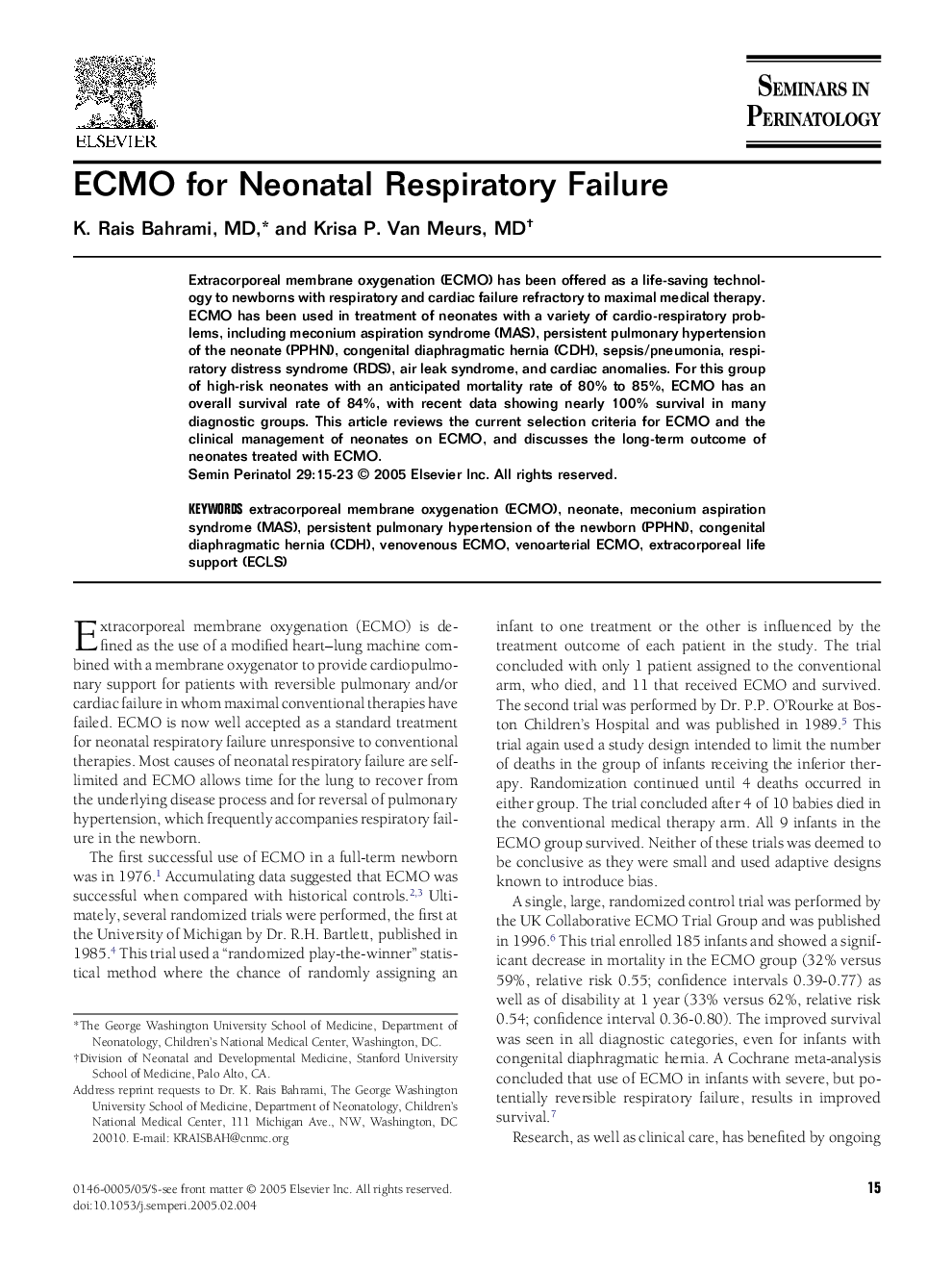| Article ID | Journal | Published Year | Pages | File Type |
|---|---|---|---|---|
| 9306447 | Seminars in Perinatology | 2005 | 9 Pages |
Abstract
Extracorporeal membrane oxygenation (ECMO) has been offered as a life-saving technology to newborns with respiratory and cardiac failure refractory to maximal medical therapy. ECMO has been used in treatment of neonates with a variety of cardio-respiratory problems, including meconium aspiration syndrome (MAS), persistent pulmonary hypertension of the neonate (PPHN), congenital diaphragmatic hernia (CDH), sepsis/pneumonia, respiratory distress syndrome (RDS), air leak syndrome, and cardiac anomalies. For this group of high-risk neonates with an anticipated mortality rate of 80% to 85%, ECMO has an overall survival rate of 84%, with recent data showing nearly 100% survival in many diagnostic groups. This article reviews the current selection criteria for ECMO and the clinical management of neonates on ECMO, and discusses the long-term outcome of neonates treated with ECMO.
Keywords
Related Topics
Health Sciences
Medicine and Dentistry
Medicine and Dentistry (General)
Authors
K. MD, Krisa P. MD,
